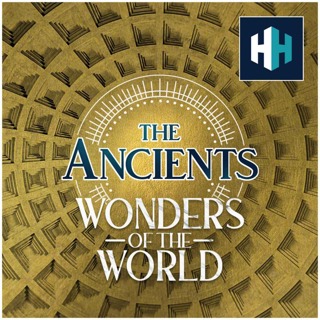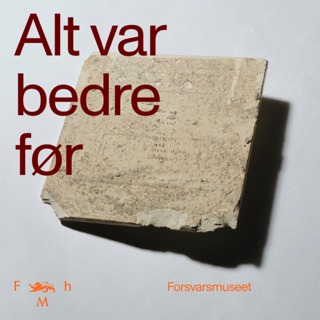
Valley of the Kings
On the west bank of the Nile, across from the ancient city of Thebes, lies the Valley of the Kings - the final resting place of several Pharaohs and their families. The valley is a 1,000 ft wide wadi [valley] that was utilised as a royal burial ground by three dynasties of the New Kingdom for over half a millennia. Made famous by Howard Carter's discovery of Tutankhamun in 1922, the Valley of the Kings is home to the most celebrated archaeological finds in history.For this third episode of our special miniseries on Tutankhamun, Tristan is joined by renowned egyptologist, broadcaster and author, Dr Chris Naunton to learn more about the incredible place where Tut and so many others entered the realm of the dead.Edited by Aidan Lonergan.For more Ancients content, subscribe to our Ancients newsletter here. If you'd like to learn even more, we have hundreds of history documentaries, ad free podcasts and audiobooks at History Hit - subscribe today! Hosted on Acast. See acast.com/privacy for more information.
17 Nov 202251min

Zeus: King of the Gods
Zeus, the chief deity in Greek mythology, is the Olympian god of sky and thunder, and is king of all other gods and men.His tale is one of overthrowing fathers, eating babies and seducing women, both mortal and divine, by changing his own form. He's one of the most complex figures in history, and his story is one that's been retold throughout millennia. To try and make sense of it all, we're going back to very beginning, to the origins of Zeus, starting with his grandfather and grandmother, Uranus and Gaia. We learn about the prophecy that ultimately overthrows Uranus, the same one that is also fated for Zeus's father, Cronus, and start to understand the family-tree that becomes the Olympians - from Athena to Dionysus.For this episode, Tristan Hughes is joined by academic, author, broadcaster and Professor in Classics and Ancient History at the University of Warwick, Michael Scott. If you enjoyed this episode, you might also enjoy The Symposium: How To Party Like An Ancient Greek, also with Michael Scott.Script written by Andrew HulseVoice over performed by Deryn OliverProduced, edited and sound designed by Elena GuthrieThe Assistant Producer was Annie ColoeFor more Ancients content, subscribe to our Ancients newsletter here. If you'd like to learn even more, we have hundreds of history documentaries, ad free podcasts and audiobooks at History Hit - enter promo code ANCIENTS for a free trial, plus 50% off your first three months' subscription.To download, go to Android > or Apple store > Hosted on Acast. See acast.com/privacy for more information.
13 Nov 202254min

The Tomb of Tutankhamun
In November of 1922, British archaeologist Howard Carter, thanks to benefactor Lord Carnarvon, discovered the untouched tomb of Tutankhamun. Otherwise erased from history, the tomb of this 18th Dynasty Pharaoh would go on to change the world. Undoubtedly cited as one of the greatest archaeological finds in human history, do we really know what happened in November 1922? Or is there more to the story?In the second episode of our Tutankhamun series, Tristan is joined by Egyptologist and author Bob Brier a.k.a. “Mr Mummy”. Together they tell us the details of this groundbreaking discovery, and help illuminate the missing characters. How did Howard Carter stumble across a world changing archaeological find - and was it worth the breakdown in diplomatic relations that followed?Content Warning: This episode contains references to miscarriages that some listeners may find upsetting.For more Ancients content, subscribe to our Ancients newsletter here. If you'd like to learn even more, we have hundreds of history documentaries, ad free podcasts and audiobooks at History Hit - subscribe today! Hosted on Acast. See acast.com/privacy for more information.
10 Nov 202237min

The World's Earliest Cave Art
200,000 years ago in what is now Tibet, two children left a set of hand and foot prints on a travertine boulder, still identifiable today and is thought to be the earliest example of cave art.In today’s episode, Tristan Hughes is joined by Dr Sally Reynolds from the University of Bournemouth, who describes the evidence that suggests this was a deliberate act of creativity, highlighting the human urge to make art goes back millennia.We also learn that these feet and hands likely belong to Denisovans, predating Homo sapiens in Europe and Asia. It’s a fascinating discussion around not just art, but also the earliest evidence of humans living high altitude anywhere in the world, and a glimpse into what human behaviour would have been like to allow for children to be this creative nearly a quarter of a million years ago.For more Ancients content, subscribe to our Ancients newsletter here.If you'd like to learn even more, we have hundreds of history documentaries, ad free podcasts and audiobooks at History Hit - enter promo code ANCIENTS for a free trial, plus 50% off your first three months' subscription.To download, go to Android > or Apple store > Hosted on Acast. See acast.com/privacy for more information.
6 Nov 202234min

Tutankhamun
Tutankhamun is one of the most famous names in ancient history. Known as the 'Boy King', he ascended the Egyptian throne at the age of 9 and ruled for just under a decade. In this time, there's evidence of his sporting activities, his religious restoration, and even his penchant for an ancient Egyptian board game. But is there more to the Boy King than his tomb tells us?In this episode, Tristan is joined by Professor Joyce Tyldesley to launch our new November mini-series diving into all things Tutankhamun. Together they discuss what the available sources tell us about Tutankhamun's life, and help debunk some of the popular myths out there about King Tut.For more Ancients content, subscribe to our Ancients newsletter here. If you'd like to learn even more, we have hundreds of history documentaries, ad free podcasts and audiobooks at History Hit - subscribe today! Hosted on Acast. See acast.com/privacy for more information.
3 Nov 202247min

Ukraine's Ancient Greek City
Located in modern day Ukraine, Olbia was the largest ancient Greek settlement on the coast of the Black Sea. A mix of Scythian and Greek culture, Olbia interacted with settlements and cultures across the ancient world. In this episode, Tristan is joined by Dr Owen Rees to talk about the fascinating and wonderful history of this peripheral city state - that despite all odds, managed not only to survive, but ultimately thrive.For more Ancients content, subscribe to our Ancients newsletter here. If you'd like to learn even more, we have hundreds of history documentaries, ad free podcasts and audiobooks at History Hit - enter promo code ANCIENTS for a free trial, plus 50% off your first three months' subscription.To download, go to Android > or Apple store > Hosted on Acast. See acast.com/privacy for more information.
30 Okt 202240min

Colosseum
Nicknamed the 8th wonder of the ancient world, the Colosseum still stands in splendour today. Located in the heart of Rome, nestled at the bottom of the Palatine Hill, neighbouring the ancient Roman Forum - the Colosseum is nearly 2000 years old. But who is responsible for this colossal amphitheatre, and what exactly was it built for?Tristan is joined by Dr Nathan Elkins to talk about this monument of Roman imperialism, and to take a look at the role it has played throughout history. Taking 10 years and 3 emperors to be completed - the crumbling marble was once decorated with vibrant colours and architectural features, representative of Roman might and decadence. Home to beast hunts, gladiatorial games, and one of the most remarkable sewage systems in the ancient world - what can we learn about Roman life from one of the world's most famous monuments?For more Ancients content, subscribe to our Ancients newsletter here. If you'd like to learn even more, we have hundreds of history documentaries, ad free podcasts and audiobooks at History Hit - subscribe today! Hosted on Acast. See acast.com/privacy for more information.
27 Okt 202243min

The First Black Archaeologist
Born to slaves in 1863, John Wesley Gilbert was the first student of the Paine Institute, a graduate of Brown University, and the first black archaeologist.While at Brown, he was awarded a scholarship to study abroad at the American School of Classical studies in Athens, Greece. Here, he helped to shape modern archaeology as we know it today. Working tirelessly, and meticulously on excavations where he helped uncover the ancient city of Eretria, Gilbert also travelled across the country to beautiful ancient sites, and even attended the funeral of Heinrich Schliemann - the man who discovered Troy.In this episode, Tristan is joined by Professor John W.I Lee from UC Santa Barbara to talk about Gilbert's incredible life, and the legacy that he left behind.For more Ancients content, subscribe to our Ancients newsletter here. If you'd like to learn even more, we have hundreds of history documentaries, ad free podcasts and audiobooks at History Hit - subscribe today! Enter promo code ANCIENTS for a free trial, plus 50% off your first three months' subscription. Hosted on Acast. See acast.com/privacy for more information.
23 Okt 202239min




















